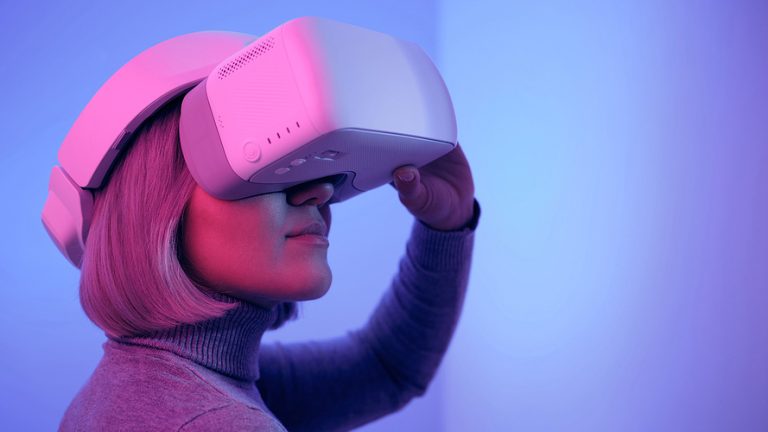Virtual reality empowering women can build a more empowering reality, offering them the support and learning tools
The critics have countered that Virtual Reality’s software and programming foster sexism and gender bias, evidenced by the traditional power structures that prevail in leadership positions today. However, interest has increased in using immersive tech for social change, so it’s worth asking: Can we truly realize that virtual reality empowers women’s potential to help, and not hinder, working women? The answer, it’s a yes.
While it’s true that programmers must take proactive measures to ensure that VR avoids creating hostile environments for women, groundbreaking VR applications can empower female leaders by nourishing supportive mentorship groups, educating on and preventing sexual harassment, and ultimately fostering the empathy that safeguards against workplace sexism.
Virtual Reality Realms of Support and Mentoring:
For women to thrive at work, they must have strategic support systems of peers and mentors, specifically those comprised of other women who know first-hand the challenges they face regularly. The virtual reality empowering women extends the opportunity for women to communicate with each other in networks that help them flourish.
One great example is the Lioness app created by the integrated ad company Ogilvy in partnership with Google and UN Women. Due to the lack of female representation within the advertising industry, the app was created to foster a platform where women can share and learn from each other’s experiences. Employing various Google tools, including augmented and virtual reality portals, the app offers features a tour creator to generate visual workplace field trips, inspiring students who wouldn’t otherwise have access to female leaders.
Though some men in leadership positions have reported fears of mentoring women in the wake of the #MeToo movement, more companies are now emerging that focus on creating virtual learning and mentoring environments for women. Take Ceresa, for example, which offers structured programs with virtual mentorship meetings to remove the burden of anxiety and build more lasting mentoring relationships.
Virtual Sexual Harassment Training and Monitoring:
A study found that 78 percent of female founders had reported experiencing, or knowing someone who had encountered, sexual harassment at work. However, virtual reality empowering women can both train co-workers and monitor the office to safeguard against sexual harassment and abuse.
The key is creating an immersive experience that helps engage trainees and puts the material into a real-life context. Companies like Vantage Point have designed a multi-step, VR sexual harassment training program that essentially transports you to another world. In safe environments, users become educated on how to identify and report sexual assault, practicing the best ways to respond if they find themselves in a similar situation.
Similar to how AI-led companies like Callisto and Botler.ai can monitor and help survivors report sexual harassment in the workplace, it’s worth noting that virtual reality empowering women tools with augmented features can identify and monitor when sexual harassment occurs, helping to expose and address its prevalence.
Virtual reality also allows women to step into the journeys and professional worlds of successful female leaders. For instance, The Female Planet, a YouTube VR series, makes it easier to shadow and learn from global female leaders by tracking the personal and professional experiences of five women from the tech and even entertainment sectors.
A More Empathetic Reality for Working Women:
Several organizations are already integrating virtual reality empowering women to help workers empathize with each other. Non-profit organizations use it to encourage donor involvement with humanitarian causes, and many companies are using it to create safer spaces and stronger bonds with their employees and customers.
For women, virtual features can help male co-workers, in particular, understand how sexual harassment affects them. Recently, the independent filmmaker Jayisha Patel created Notes to My Father, a short documentary that relays the story of a human trafficking survivor. The vivid and uncomfortable presentation demonstrates what it’s like to be the subject of the male gaze.
A VR episode or series doesn’t exist yet that documents the normalized biases, microaggressions, and sexism that female founders and workers face from investors and higher-ups, but this approach may provide impetus to create and promote these stories for businesses that are still heavily male-dominated.






Add comment